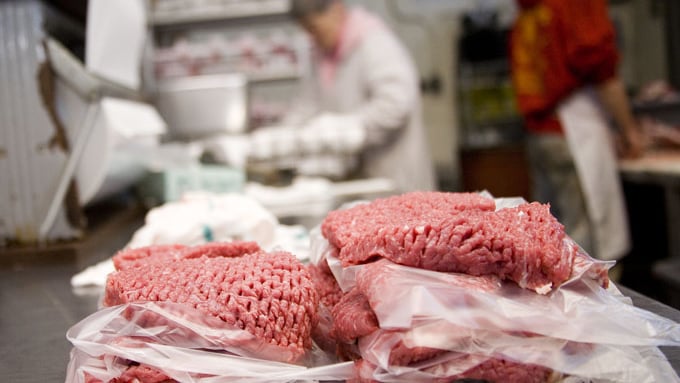Applications for Ohio Farm Bureau Health Plans now available
Members have three ways to apply: contacting a certified agent, calling 833-468-4280 or visiting ohiofarmbureauhealthplans.org.
Read MoreOne of the world’s largest meatpackers recently announced it had been hit by a cyber-attack. JBS announced Sunday some of the servers supporting its North American and Australian IT systems were targeted. The company took immediate action, suspending all of the affected systems, notifying authorities, and activating the company’s global network of IT professionals and third-party experts to resolve the situation, but said a resolution of the incident will take time, which may delay certain transactions with customers and suppliers.
“It is concerning whenever we see disruptions in our food supply chain,” said Scott Bennett, director of congressional relations with the American Farm Bureau Federation. “We hope JBS can get up and running as soon as possible. This event has certainly shined a light on how vulnerable even agriculture can be to cybersecurity threats.”
This is an all-to-familiar situation for livestock farmers, after food shortages amid the COVID-19 pandemic unveiled just how fragile the nation’s food supply system is. To address those shortfalls, Ohio Farm Bureau has put a focus on making the state’s food system more resilient for farmers and consumers.
“We have been looking at this issue for a long time bringing capacity issues and the need to grow our state’s small and medium size packers to the attention of lawmakers,” said Brandon Kern, Ohio Farm Bureau’s senior director of state and national policy. “Funding in this year’s budget shows that our message is getting through and we are very encouraged by these first steps to help grow local capacity for our livestock producers.”
The budget appropriates $10 million to the Department of Development for the creation of the Meat Processing Investment Program, which will make grants to meat processing plants for facility improvements and capacity expansion, including but not limited to equipment purchases or upgrades, training, and process improvements.
These funds may also be helpful in alleviating other issues Farm Bureau is working on, including line speeds in regional hog processing facilities and market price disparities currently being realized in the beef industry, but they will not solve them completely.
“We have to continue looking at the bigger picture of these issues. The meat packing industry is dominated by four major players and two of them are foreign owned and producers are concerned about that,” Kern said. “They are also concerned about price points and the current logistics in the supply chain. What is being done in Ohio will help, but these issues span much further than our state lines and we will continue to work on our members’ behalf to see that their concerns are addressed.”


Members have three ways to apply: contacting a certified agent, calling 833-468-4280 or visiting ohiofarmbureauhealthplans.org.
Read More

Legacy nutrient deductions enable new farmland owners to claim deductions on the nutrients within the soil on which healthy crops depend.
Read More

Farmers, agribusinesses and community members are encouraged to nominate their local fire departments for Nationwide’s Nominate Your Fire Department Contest through April 30.
Read More

Introduced by Sen. Paula Hicks-Hudson, SB 120 would establish the Urban Farmer Youth Initiative Pilot Program.
Read More

Gases, vapors, and fumes can all create risk. How can we measure and protect ourselves from them?
Read More

The Ohio Farm Bureau’s Young Agricultural Professionals State Committee has named its 2026 leadership and the individuals who will be serving on the state committee for 2026-2028.
Read More

The Ohio Farm Bureau Foundation has multiple scholarships available to Ohio students from rural, suburban and urban communities who are pursuing degrees with a connection to the agricultural industry.
Read More

With 100% bonus depreciation now permanent, farmers can deduct the full cost of a new agricultural building in the year it’s placed in service.
Read More

Lincoln Deitrick was named the Outstanding Young Farmer, Denver Davis won the Excellence in Agriculture Award, and Margaret Houts won the Discussion Meet.
Read More

Michelle Downing of Franklin County has been named finance director of county operations for Ohio Farm Bureau.
Read More